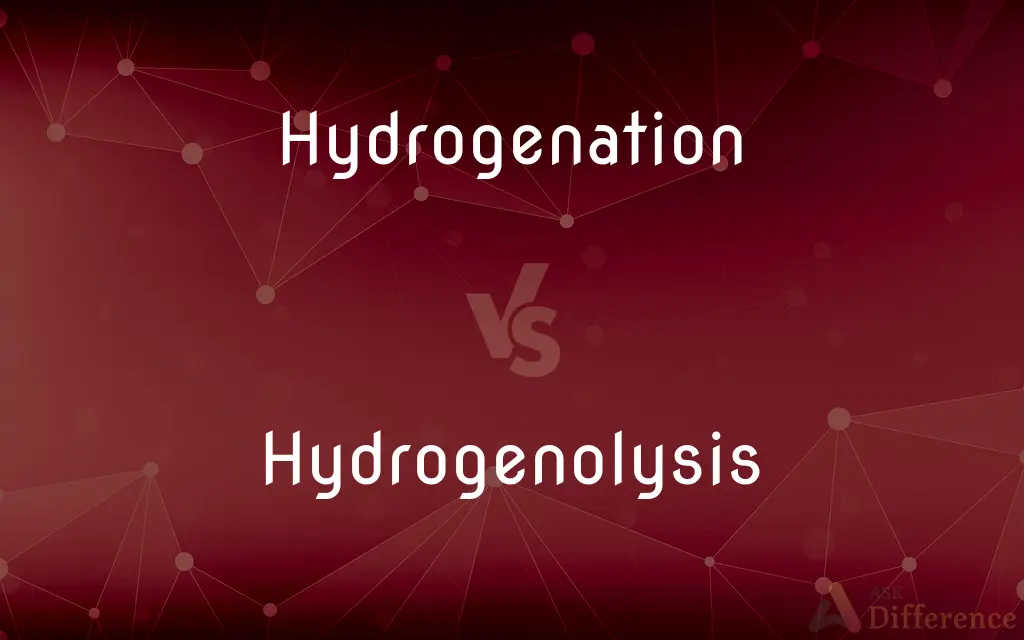Hydrogenation vs. Hydrogenolysis — What's the Difference?

Difference Between Hydrogenation and Hydrogenolysis
ADVERTISEMENT
Compare with Definitions
Hydrogenation
Hydrogenation is a chemical reaction between molecular hydrogen (H2) and another compound or element, usually in the presence of a catalyst such as nickel, palladium or platinum. The process is commonly employed to reduce or saturate organic compounds.
Hydrogenolysis
Hydrogenolysis is a chemical reaction whereby a carbon–carbon or carbon–heteroatom single bond is cleaved or undergoes lysis (breakdown) by hydrogen. The heteroatom may vary, but it usually is oxygen, nitrogen, or sulfur.
Hydrogenation
(chemistry) The chemical reaction of hydrogen with another substance, especially with an unsaturated organic compound, and usually under the influence of temperature, pressure and catalysts.
Hydrogenolysis
The breaking of a chemical bond in an organic molecule with the simultaneous addition of a hydrogen atom to each of the resulting molecular fragments.
Hydrogenation
The act of combining with hydrogen, or the state of being so combined.
ADVERTISEMENT
Hydrogenolysis
(chemistry) the cleavage of a molecule, especially that of a carbon-carbon bond, with the addition of hydrogen atoms to the fragments
Hydrogenation
A chemical process that adds hydrogen atoms to an unsaturated oil;
Food producers use hydrogenation to keep fat from becoming rancid
Share Your Discovery

Previous Comparison
Dream vs. Aspiration
Next Comparison
Overdraft vs. Overdraw













































